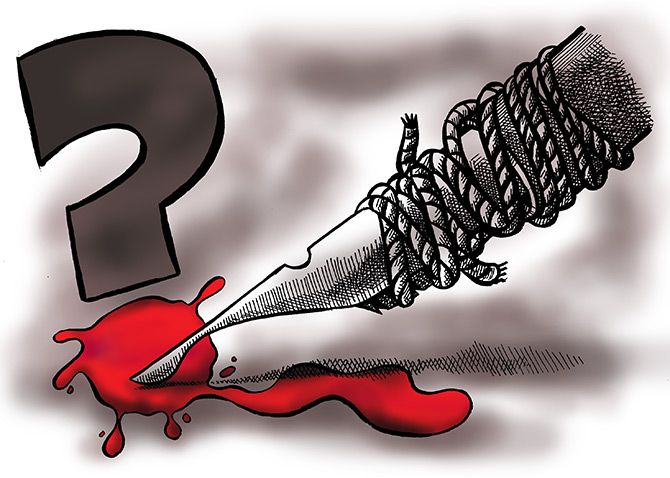While noting there needed to be a balance between the two fundamental rights, the Srikrishna panel stated there was an inherent conflict.
“However, disclosure of information from public authorities may lead to private harms being caused. It is thus important to recognise that, in this context, there is a conflict of fundamental rights, between transparency and privacy,” the report stated.

The fears that the Justice Srikrishna panel report would give importance to individual privacy over the fundamental right to information and disturb the RTI (Right to Information) framework do not seem to have been allayed.
The report on data protection, along with a draft privacy bill, was submitted to the government on Friday, and seeks to strengthen India’s data protection laws and provide for individuals’ right to privacy.
However, there were concerns about the report’s recommendation of amending the RTI Act. Activists say it could dilute the RTI law further and make it difficult to access information from the government.
The RTI Act was passed in 2005 to guarantee the right of citizens to access information from public authorities.
While noting there needed to be a balance between the two fundamental rights, the panel stated there was an inherent conflict.
“However, disclosure of information from public authorities may lead to private harms being caused. It is thus important to recognise that, in this context, there is a conflict of fundamental rights, between transparency and privacy,” the report stated.
But the report examined the RTI Act, specifically Section 8(1)(j), which deals with unwarranted invasion of privacy and allows for requests for information to be denied if they breach it. This section is often cited to deny information about public servants.
The report, however, clarified there could not be an oversight of the provisions of the RTI law in the garb of privacy rights.
It wanted the RTI Act to “specifically” spell out the circumstances in which disclosure of personal information would be a proportionate restriction on an individual’s privacy.
Even as the committee said that privacy could not become a “stonewalling” tactic to hinder public accountability, it prescribed amendments to the RTI provisions by including a test which specified which information could not be provided under the law.
The committee is of the view that if disclosure of a certain piece of information causes more harm to the data principal than the public interest in that information, it can be denied.
“This is a very dangerous sign for public accountability that RTI provisions are sought to be weakened through this law. Now we will have to prove when we seek information that it doesn’t remotely have any element of someone’s identity as the definition of ‘personal information’ is broad,” said Anjali Bhardwaj, co-convener of the National Campaign for People’s Right to Information.
Any piece of information relating to a natural person’s attributes, characteristics that can directly or indirectly help establish their identity, is classified as personal information by the Justice Srikrishna panel.
If the draft law is passed as is, RTI requests pertaining to information about ration, welfare delivery, social services, students’ scholarships and healthcare could be denied because they will contain elements of some individual’s identity, said Bhardwaj.
Section 8(1)(j) deals with such requests currently and it is not clear whether the proposed amendment will make the RTI law weaker.
Framing the privacy law and ensuring data protection do not require an amendment to the RTI Act, said a statement released on Friday by Save Our Privacy, a collective of lawyers and activists working on the right to privacy.
Amba Kak, lawyer and policy advisor with Mozilla, told Business Standard it was clear that the Bill had gone through different iterations based on the difference between media leaks and actual clause in the bill, specifically on RTI.
The problem, however, is not peculiar to India. Other countries like the UK and Australia have also found themselves in the middle of this tiff between the right to transparency and privacy. But, their solutions often did more harm than good, said Raman Chima, lawyer and policy director, AccessNow.
Illustration: Uttam Ghosh/Rediff.com.











